Academic Information on the Internet
Open archives
E-dissertations, articles and research works can be found in open repositories or digital archives (open access archives) of universities and scientific institutions. Most of the materials can be retrieved in full-text format. Members of the institution can upload their materials into such repositories. The repositories may contain peer-reviewed articles, dissertations, historical documents, images, etc.
Theses in open archives
NDLDT (Networked Digital Library of Theses and Dissertations) website has links to various digital archives around the world and e-dissertation search engines, including
- DART https://www.dart-europe.org/ – European e-theses portal with search engine
- BASE http://www.base-search.net/ – the possibility to search in many digital archives. In addition to theses, it also contains articles, books, reports, pictures, etc.
- OADT https://oatd.org/ (Open Access Theses and Dissertations) – only to find open access theses
Research data in open archives
re3data.org – search tool for research data. For more details, see the registers of repositories.
OAISTER
The global association of digital archives OAIster makes archival materials accessible through the worldwide union library catalogue WorldCat. A separate search form has been developed for searching among materials in digital archives that allows searching exclusively among the OAIster materials.
Advanced Search is best suited for this purpose
http://oaister.worldcat.org/advancedsearch.

Fig. 1. OAIster search form.
If you do not limit your search from the very beginning, the database offers many options for narrowing your search results.
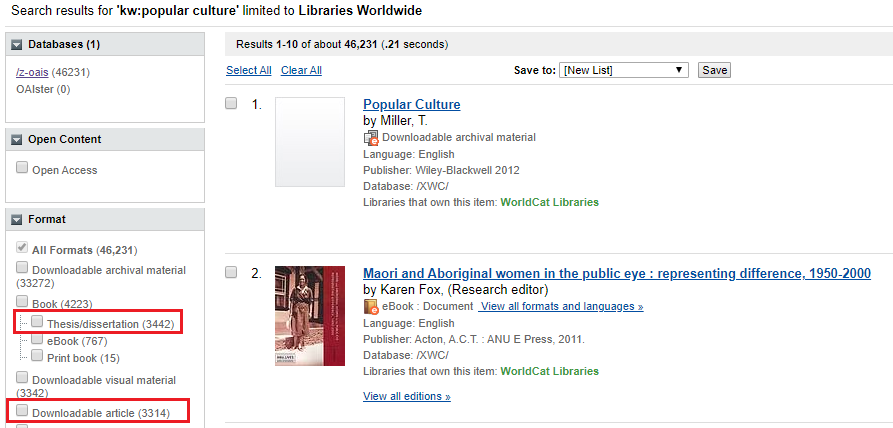
Fig. 2. OAIster search results.
The number of results is in the brackets after each limiting field. Results can be refined by the format, language, publication year, author, content (fiction/non-fiction/biography) and topic. Choosing the Open Access limiter at the beginning of the search or while refining the results will show you content from only known open access subdatabases, but for many of the results you get without this filter, links leading to full texts can be found when opening the record.
BASE
BASE is a multi-disciplinary search engine for scholarly internet resources. It provides more than 150 million documents from more than 7000 sources. Full texts of about 60% of the indexed documents are accessible for free (Open Access). BASE also discloses web resources of the “Deep Web”, which are ignored by commercial search engines or get lost in the vast quantity of hits.
BASE search has lots of options for limiting or expanding the search. You can also use different languages for searching.
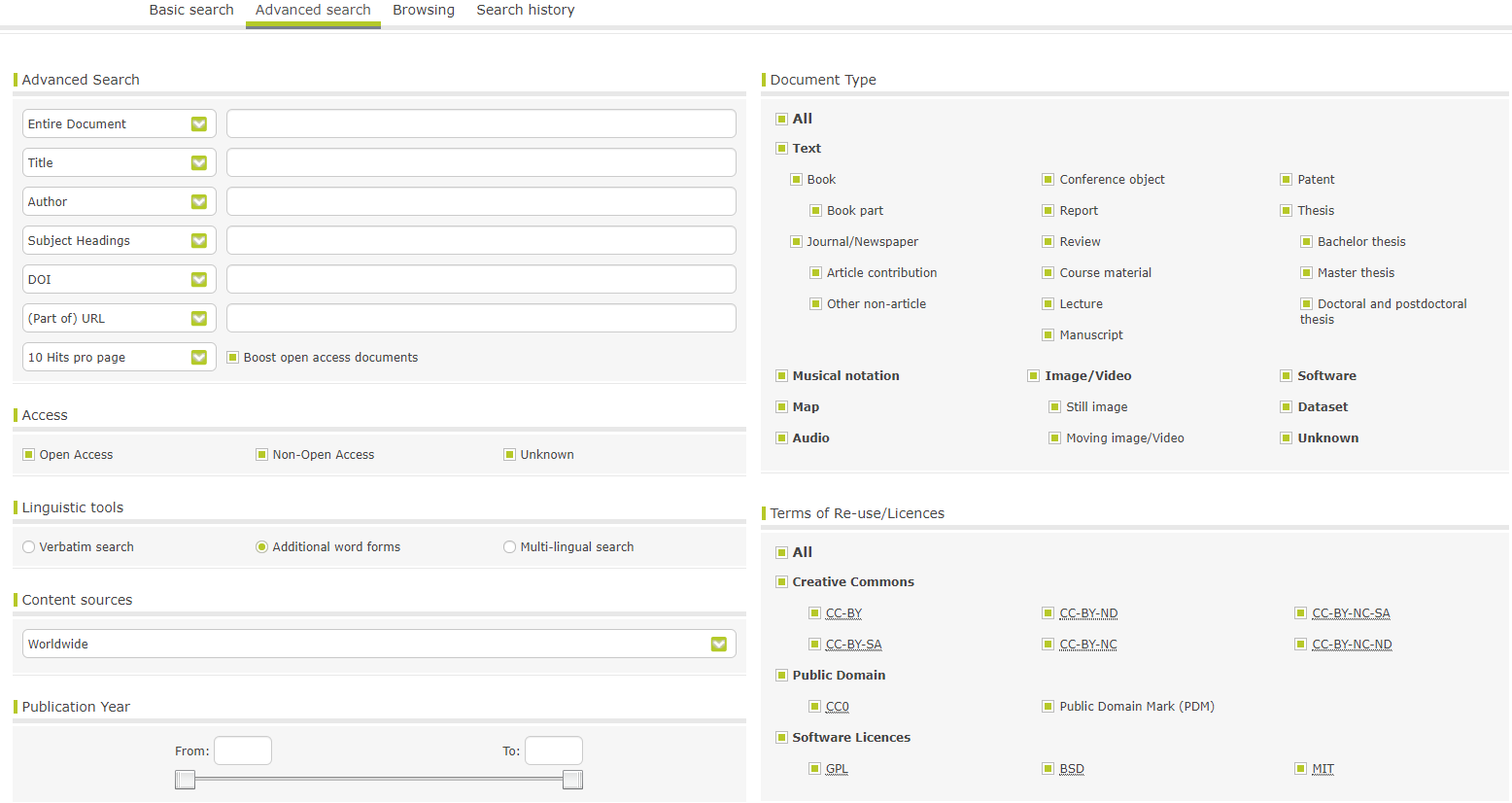 Fig. 3. BASE advanced search
Fig. 3. BASE advanced search
The search results are displayed in a list sorted by relevance. You can also order them alphabetically (either by author or title) or by publication date. It is possible to refine the search results by author, subject, DDC, year of publication, content provider, language, document type, access and re-use terms. If you filter by language, keep in mind that “unknown” language means that the language is just not specified – you can also find English language documents from there. In the list, you will see a quick view of the record; for more information, click on Detail View. If you can not find a link to the full text from the BASE record, you can try checking in Google Scholar.
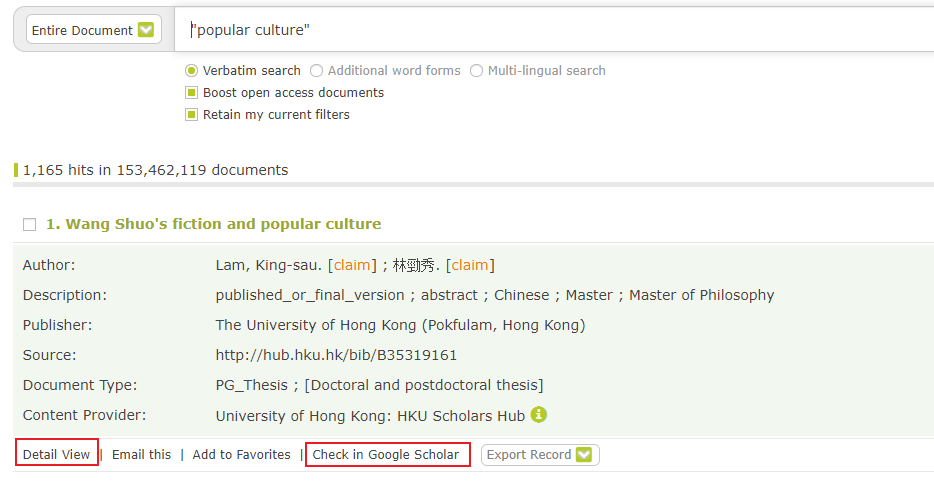
Fig. 4. BASE results view.
Please use BASE help page for more detailed information.
CORE
CORE also allows you to search digital archives of the world. In the basic search, the operator OR is used as a default, meaning that at least one of the words is searched. In advanced search, you can use different fields for different operators.
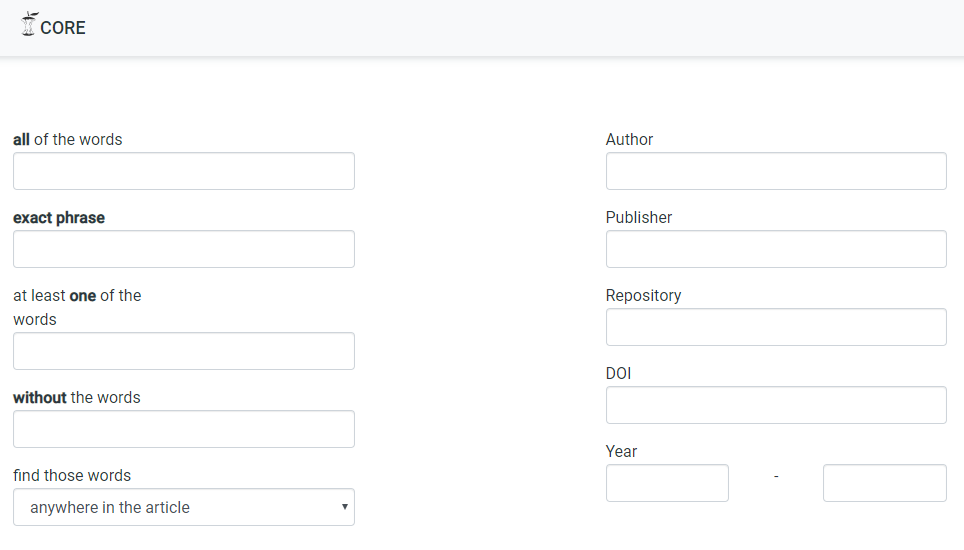
Fig. 5. CORE advanced search form.
You can refine your search by year, language, journals and repositories. A permalink for the search is also displayed under the refining categories. You can see more detailed information (bibliographic information, suggested articles and geographical location of the repository) about the record by clicking on its title.
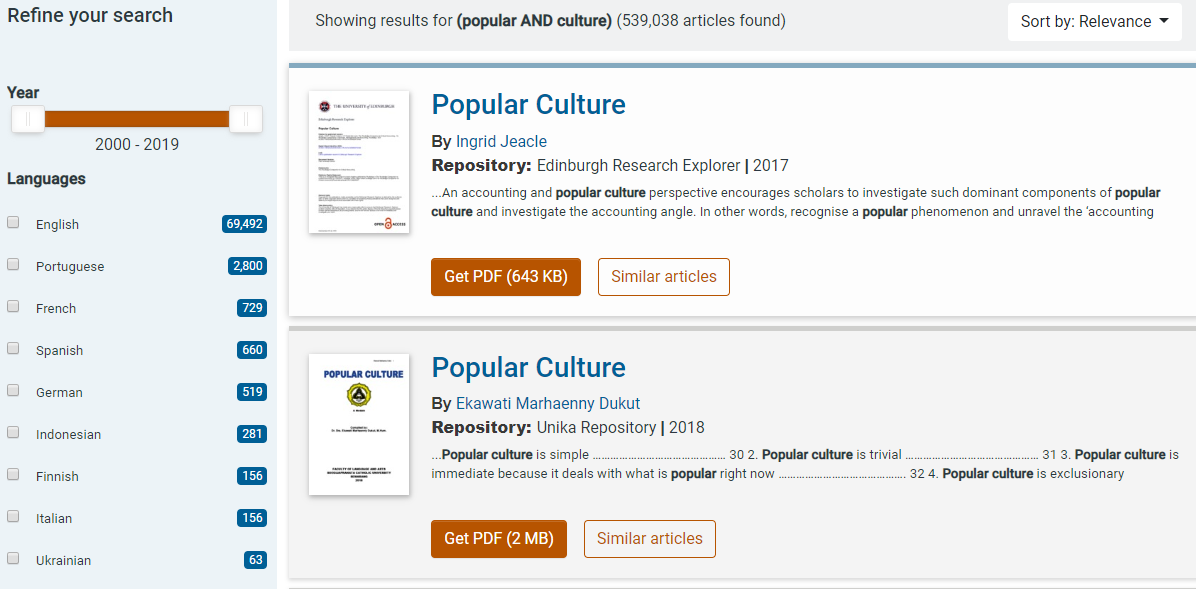
Fig. 6. CORE results.
You might get fewer results with a CORE search because CORE only searches for scientific publications. It can also find some smaller OA journals that OAIster and BASE miss.
Estonian repositories
DSpace is the digital repository of the University of Tartu. You can find its materials on the webpage, Google searches, or the above-mentioned archives.
Materials from the National Library archive Digar can be retrieved by separate archive searches or by links from the e-catalogue ESTER and ISE.

